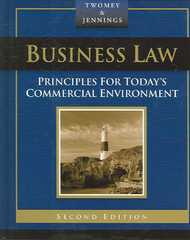Question
Question 1 Consumer surplus is best defined as: a.How much income a consumer has left over after making their purchases. b.the difference between how much
- Question 1
- Consumer surplus is best defined as:
- a.How much income a consumer has left over after making their purchases.
- b.the difference between how much consumers are willing and able to pay for a good and how much they actually pay.
- c.The difference between how much consumers are willing and able to pay for a good and how much it costs to produce that good.
- d.How much a consumer is willing and able to pay for a good.
Question 3
A binding price floor results in:
a.A surplus in the market and deadweight welfare loss from overproduction.
b.A surplus in the market and deadweight welfare loss from underproduction.
c.A shortage in the market and deadweight welfare loss from overproduction.
d.A shortage in the market and deadweight welfare loss from underproduction.
Question 4
In a perfectly functioning market, a subsidy to consumers will lead to:
a.An increase in demand and deadweight welfare loss from underproduction.
b.An increase in demand and deadweight welfare loss from overproduction.
c.A decrease in demand and deadweight welfare loss from underproduction.
d.A decrease in demand and deadweight welfare loss from overproduction.
- Question 5
- Government failure refers to the notion that:
a.Government beaurocrats always make themselves better off at the expense of the public.
- b.In a perfectly functioning, perfectly competitive market, government intervention leads to deadweight welfare loss.
- c.Government intervention in a market always leads to efficiency loss, regardless of the circumstance.
- d.The government cannot produce goods as efficiently as the private sector.
Question 6
A socially efficient outcome in a market is:
a.In a perfectly functioning, perfectly competitive market, government intervention leads to deadweight welfare loss.
b.The government cannot produce goods as efficiently as the private sector.
c.Government beaurocrats always make themselves better off at the expense of the public.
d.Government intervention in a market always leads to efficiency loss, regardless of the circumstance.
Step by Step Solution
There are 3 Steps involved in it
Step: 1

Get Instant Access to Expert-Tailored Solutions
See step-by-step solutions with expert insights and AI powered tools for academic success
Step: 2

Step: 3

Ace Your Homework with AI
Get the answers you need in no time with our AI-driven, step-by-step assistance
Get Started


